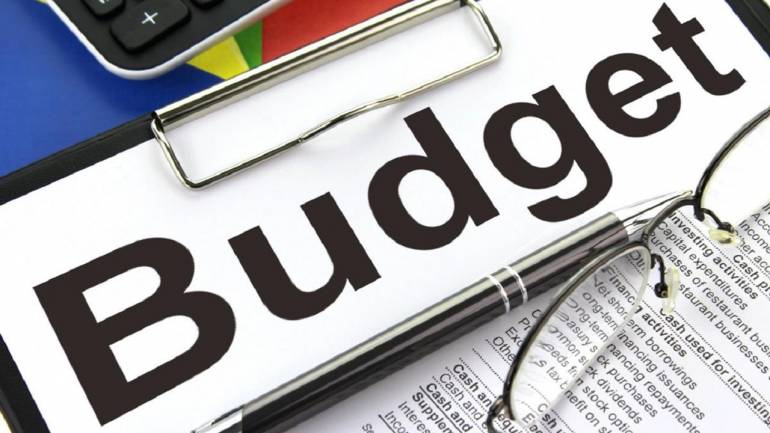Ashwani Gandhi, CEO, Niraamaya Life, As we await Budget 2025, we hope for a plan that drives growth, prioritizes tourism and healthcare, and supports sustainability. Investments in wellness infrastructure, green initiatives, and job creation are key. A reduction in GST from 18% to 12% for hotels with room rates above Rs. 7,500 would provide a significant boost to both domestic and inbound tourism.
We also call for a focus on tourism and infrastructure investments, ease of doing business, enhanced connectivity, and streamlined tax rates. Sustainable tourism initiatives should be incentivized through renewable energy investments and targeted sector-specific policies. Tax relief on operational expenses and improved access to credit will further encourage innovation and business growth.
Mr Rishi Jain, Managing Director, Jain Group
"We look forward to Union Budget 2025 bringing transformative reforms for the real estate and hospitality sectors. Granting 'Industry Status' to real estate is crucial for improving access to affordable financing and timely project execution. Lowering GST rates on under-construction properties, rationalizing input tax credits, and fostering Special Economic Zones for hospitality can drive growth and job creation.
Targeted interventions like interest rate reductions, technology subsidies, and simplified regulatory frameworks will boost competitiveness and attract investments. This budget has the potential to unlock these sectors' true potential and further their contribution to India's economic growth."
Mr. Arya Sumant, Managing Director, Eden Realty Group
"As the Union Budget 2025 approaches, we are hopeful for reforms that can drive growth and enhance affordability in the real estate sector. Increasing the home loan interest tax deduction limit to ₹5 lakh and revising the affordable housing price cap to ₹80 lakh would make homeownership more accessible, particularly in metros like Kolkata.
Reviving the Credit Linked Subsidy Scheme (CLSS) is vital to supporting first-time homebuyers and boosting residential demand. Additionally, granting 'Industry Status' to real estate would open up structured financing avenues, reducing costs and attracting investments.
We also urge the government to introduce tax incentives for sustainable development to encourage green building practices, aligning with global trends and investor interests. These measures would ensure the sector remains a key driver of India's economic progress".
Mr Sanjay Jain, Managing Director, Siddha
As we approach the Union Budget 2025, the real estate sector is indeed at a pivotal juncture, and the expectations for reforms to drive growth, transparency, and affordability are high.
The transformative measures expected in the Union Budget 2025 could drive significant growth in the real estate sector, particularly in terms of affordability, sustainability, and investment opportunities. By promoting green construction, providing more tax relief for homebuyers, incentivizing infrastructure development, and streamlining regulations, the government can boost both demand and supply in the housing sector, fostering a more inclusive and sustainable real estate market.
These reforms would not only cater to the evolving needs of the urban population but also ensure long-term stability and growth in the sector. The expected focus on transparency, fiscal incentives, and infrastructure development can help create a more conducive environment for real estate investors, developers, and end-users alike.
Prof. Manoshi Roychowdhury, Co-Chairperson, Techno India Group
"The Union Budget 2025 must prioritize strategic investments in the education sector to unlock India's full potential. Increased funding for higher education, integration of advanced technology, and a stronger emphasis on skill development and vocational training are essential. Providing better opportunities for quality education, especially in underserved regions, through enhanced digital infrastructure and targeted financial aid is crucial. The government should also focus on the continuous professional development of educators and promote research and innovation in academia, ensuring India remains competitive in an ever-evolving global landscape. Recognizing the significance of collaborative efforts between the government, private sector, and non-governmental organizations is key to closing the skill gap. These stakeholders must work together to ensure the robust implementation of these initiatives, turning them into tangible outcomes that benefit the entire nation. Additionally, supporting performing arts, sports, art and design, as well as increasing investments in medical studies, will further enrich India's cultural and healthcare landscape, providing well-rounded opportunities for growth and development."
Ms Priyanka Bardia, Director, Aakash Aath & Platform 8
In the Union Budget 2025 we hope the Government to introduce Policies or Reforms which will be more Entertainment Industry friendly and will contribute in large for its rapid and wide growth. We expect the Government to take into consideration the Taxation Benefits for the broadcasters. This will encourage them to invest more in quality content and expand their reach. The process of Digitisation has been a landmark in the growth of the Media and Entertainment Industry. In the era of smartphones and OTT, Digital India demands more innovative and technically advanced initiatives to be implemented which can enhance the shape of the digital infrastructure.
Lastly, the Regulatory Frameworks from the I&B Ministry needs to be more simplified, but definitely specific and modern. This can contribute at large in creating more innovative and engaging content and serving the audience largely in a better and satisfying way.


.jpg)